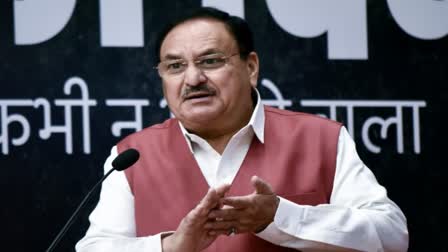New Delhi:Union Health Minister JP Naddaon Monday said that more than 95% regulatory processes currently have been digitized at Central Drugs Standard Control Organization (CDSCO), bringing transparency and increasing trust among stakeholders.
“CDSCO has developed robust systems for approving safe and efficacious drugs and medical devices in the country and for export to more than 200 countries in the world,” said Nadda while inaugurating the 19th International Conference of Drug Regulatory Authorities (ICDRA) here. CDSCO is India’s drug regulatory authority.
ICDRA is being hosted for the first time in India, bringing together regulatory authorities, policymakers, and health officials from over 194 WHO member states.
He said that the ICDRA platform provides a space to share knowledge, foster partnerships, and develop regulatory frameworks that ensure the safety, efficacy, and quality of medical products worldwide.
“During the unprecedented COVID 19 pandemic, India emerged not only as a global leader in health resilience and innovation but also reaffirmed its role as the Pharmacy of the World,” Nadda said.
He said that successful rollout of the COVID-19 vaccination program, covering over a billion people, is a testament to the robustness of our healthcare system, the dedication of our health workers, and the soundness of our policies.
The Union Health Minister highlighted that India played a crucial role in ensuring affordable access to essential medicines, vaccines, and medical supplies for nations across the globe. “Guided by the principle of ‘Vasudhaiva Kutumbakam’ – the world is one family, we extended our support to more than 150 countries, providing life-saving drugs and vaccines during the pandemic. This spirit of international solidarity is at the heart of India’s approach to global health. We believe that our progress is inseparable from the progress of the world, and as such, we remain committed to contributing to global health security and sustainability”, Nadda said.
Referring to the achievements of CDSCO, Nadda said that it has developed robust systems for ensuring availability of quality medicine at affordable price is at the core.
